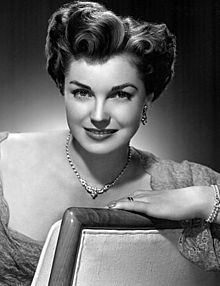
Henryk Adam Aleksander Pius Sienkiewicz, also known by the pseudonym Litwos, was a Polish epic writer. He is remembered for his historical novels, such as the Trilogy series and especially for his internationally known best-seller Quo Vadis (1896).
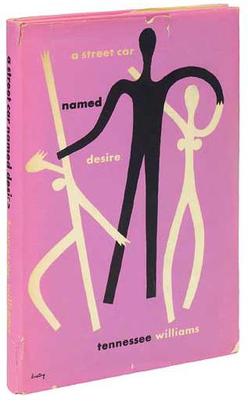
A Streetcar Named Desire is a play written by Tennessee Williams and first performed on Broadway on December 3, 1947. The play dramatizes the experiences of Blanche DuBois, a former Southern belle who, after encountering a series of personal losses, leaves her once-prosperous situation to move into a shabby apartment in New Orleans rented by her younger sister Stella and brother-in-law Stanley.

Quo Vadis is a 1951 American religious epic film set in ancient Rome during the final years of Emperor Nero's reign, based on the 1896 novel of the same title by Polish Nobel Laureate author Henryk Sienkiewicz. Produced by Metro-Goldwyn-Mayer and filmed in Technicolor, it was directed by Mervyn LeRoy from a screenplay by S. N. Behrman, Sonya Levien, and John Lee Mahin. It is the fourth screen adaptation of Sienkiewicz's novel. The film stars Robert Taylor, Deborah Kerr, Leo Genn, and Peter Ustinov, and features Patricia Laffan, Finlay Currie, Abraham Sofaer, Marina Berti, Buddy Baer, and Felix Aylmer. Future Italian stars Sophia Loren and Bud Spencer appeared as uncredited extras. The score is by Miklós Rózsa and the cinematography by Robert Surtees and William V. Skall. The film was released by Metro-Goldwyn-Mayer on 2 November 1951.

John Arthur Kennedy was an American stage and film actor known for his versatility in supporting film roles and his ability to create "an exceptional honesty and naturalness on stage", especially in the original casts of Arthur Miller plays on Broadway. He won the 1949 Tony Award for Best Featured Actor in a Play for Miller's Death of a Salesman. He also won the Golden Globe for Best Supporting Actor for the 1955 film Trial, and was a five-time Academy Award nominee.
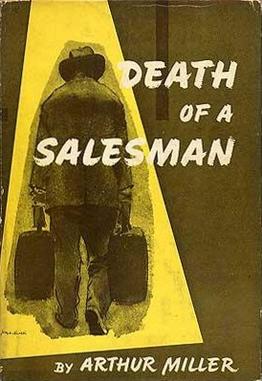
Death of a Salesman is a 1949 stage play written by the American playwright Arthur Miller. The play premiered on Broadway in February 1949, running for 742 performances. It is a two-act tragedy set in late 1940s Brooklyn told through a montage of memories, dreams, and arguments of the protagonist Willy Loman, a travelling salesman who is despondent with his life and appears to be slipping into senility. The play addresses a variety of themes, such as the American Dream, the anatomy of truth, and infidelity. It won the 1949 Pulitzer Prize for Drama and Tony Award for Best Play. It is considered by some critics to be one of the greatest plays of the 20th century. The play is included in numerous anthologies.

Sir Peter Alexander Ustinov was a British actor, director and writer. An internationally known raconteur, he was a fixture on television talk shows and lecture circuits for much of his career. Ustinov received numerous accolades including two Academy Awards, a BAFTA Award, three Emmy Awards, and a Grammy Award.
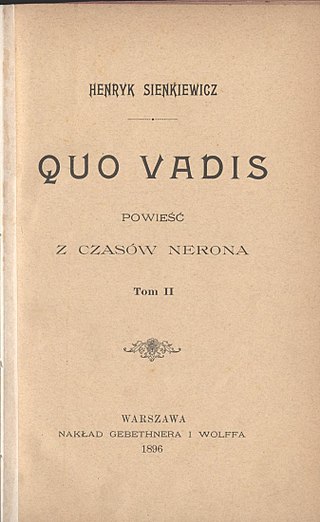
Quo Vadis: A Narrative of the Time of Nero is a historical novel written by Henryk Sienkiewicz in Polish.
The decade of the 1950s in film involved many significant films.
Alex North was an American composer best known for his many film scores, including A Streetcar Named Desire, Viva Zapata!, Spartacus, Cleopatra, and Who's Afraid of Virginia Woolf? He received fifteen Academy Award nominations for his work as a composer; while he did not win for any of his nominations, he received an Honorary Academy Award in 1986, the first for a composer.
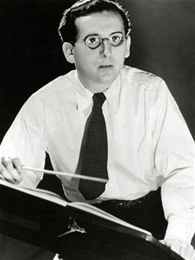
Franz Waxman was a German-born composer and conductor of Jewish descent, known primarily for his work in the film music genre. His film scores include Bride of Frankenstein, Rebecca, Sunset Boulevard, A Place in the Sun, Stalag 17, Rear Window, Peyton Place, The Nun's Story, and Taras Bulba. He received twelve Academy Award nominations, and won two Oscars in consecutive years. He also received a Golden Globe Award for the former film. Bernard Herrmann said that the score for Taras Bulba was "the score of a lifetime."
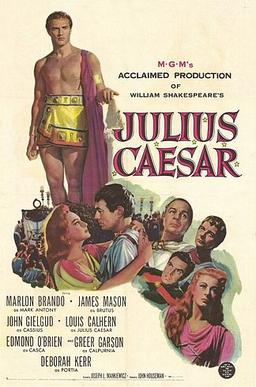
Julius Caesar is a 1953 American film adaptation of the Shakespearean play, directed by Joseph L. Mankiewicz and produced by John Houseman for Metro-Goldwyn-Mayer. It stars Marlon Brando as Mark Antony, James Mason as Brutus, Louis Calhern as Caesar, John Gielgud as Cassius, Edmond O'Brien as Casca, Greer Garson as Calpurnia, and Deborah Kerr as Portia.
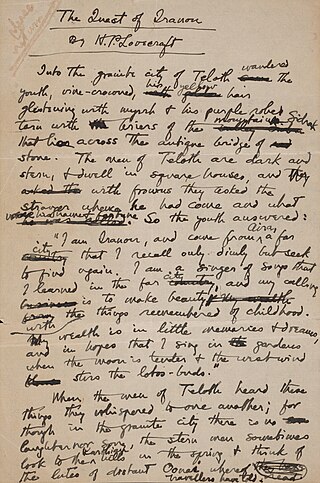
"The Quest of Iranon" is a fantasy short story by American writer H. P. Lovecraft. It was written on February 28, 1921, and was first published in the July/August 1935 issue of the magazine Galleon. It was later reprinted in Weird Tales in 1939.

The Screen Actors Guild Award for Outstanding Performance by a Male Actor in a Television Movie or Limited Series is an award given by the Screen Actors Guild to honor the finest acting achievements in Miniseries or Television Movie.
The 24th Academy Awards were held on March 20, 1952, honoring the films of 1951. The ceremony was hosted by Danny Kaye.
Sam Zimbalist was a Russian-born American film producer and film editor.
The following is a list of the Top 10 Films chosen annually by the National Board of Review of Motion Pictures, beginning in 1929.
This is a list of alleged sightings of unidentified flying objects or UFOs in Italy.
The 23rd National Board of Review Awards were announced on December 17, 1951.
